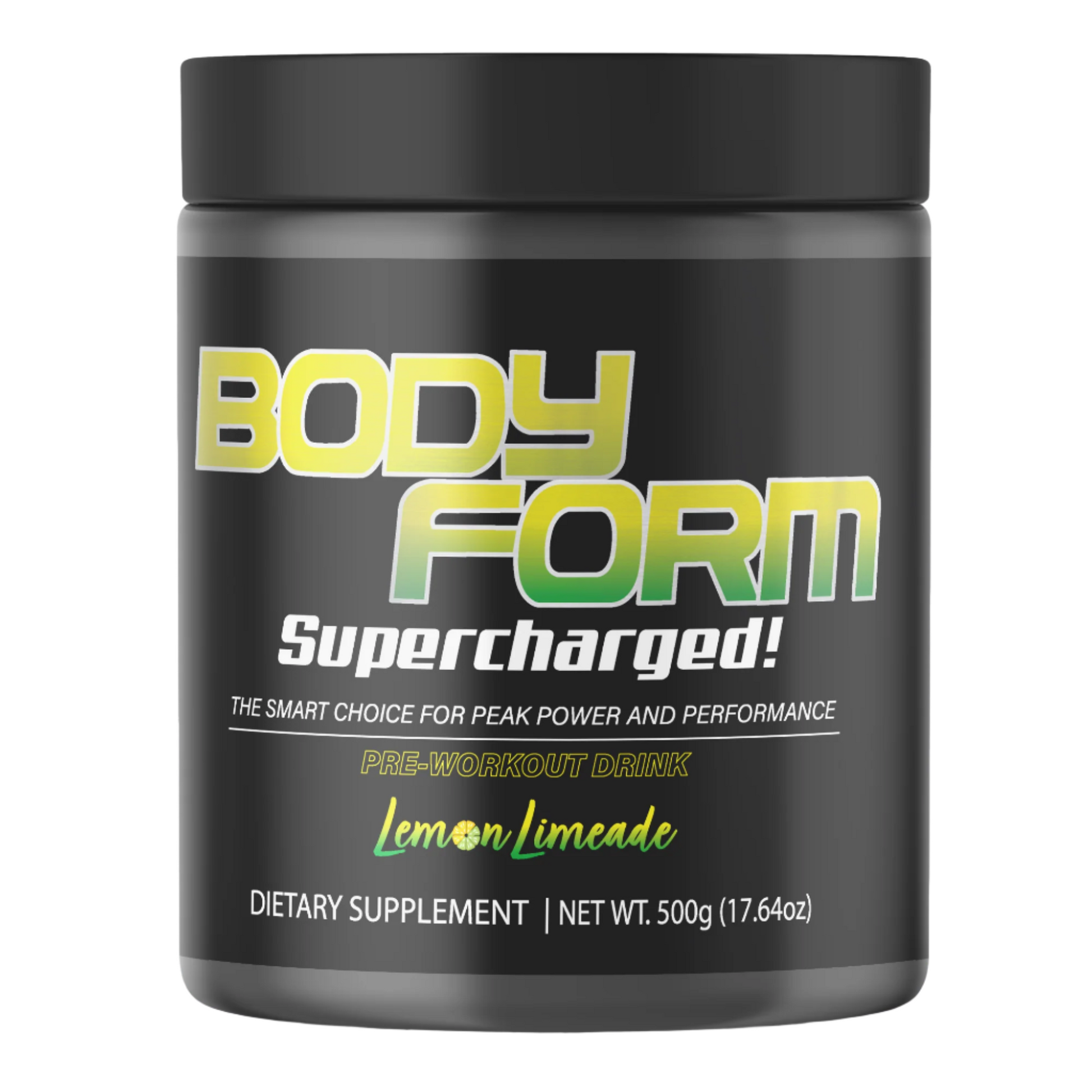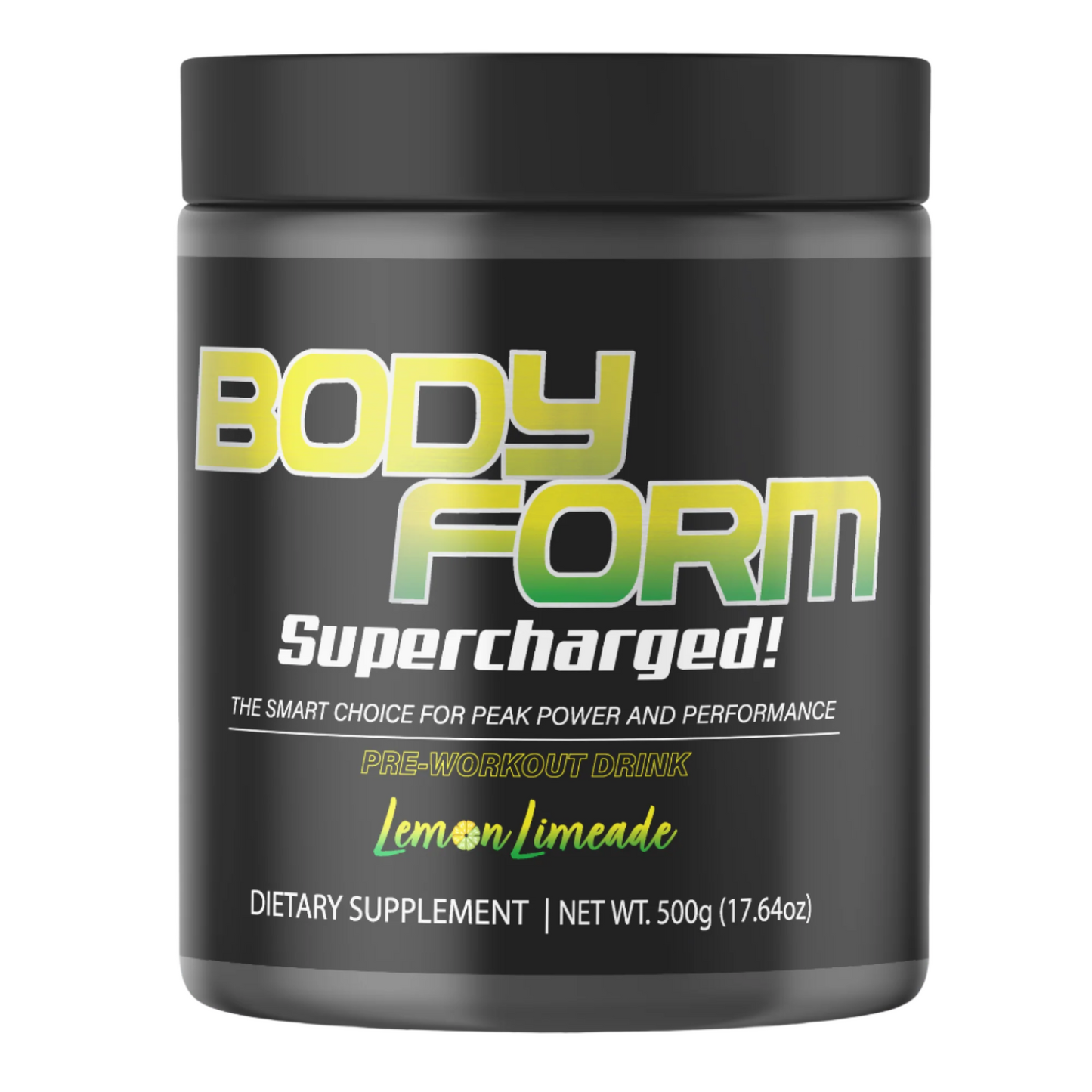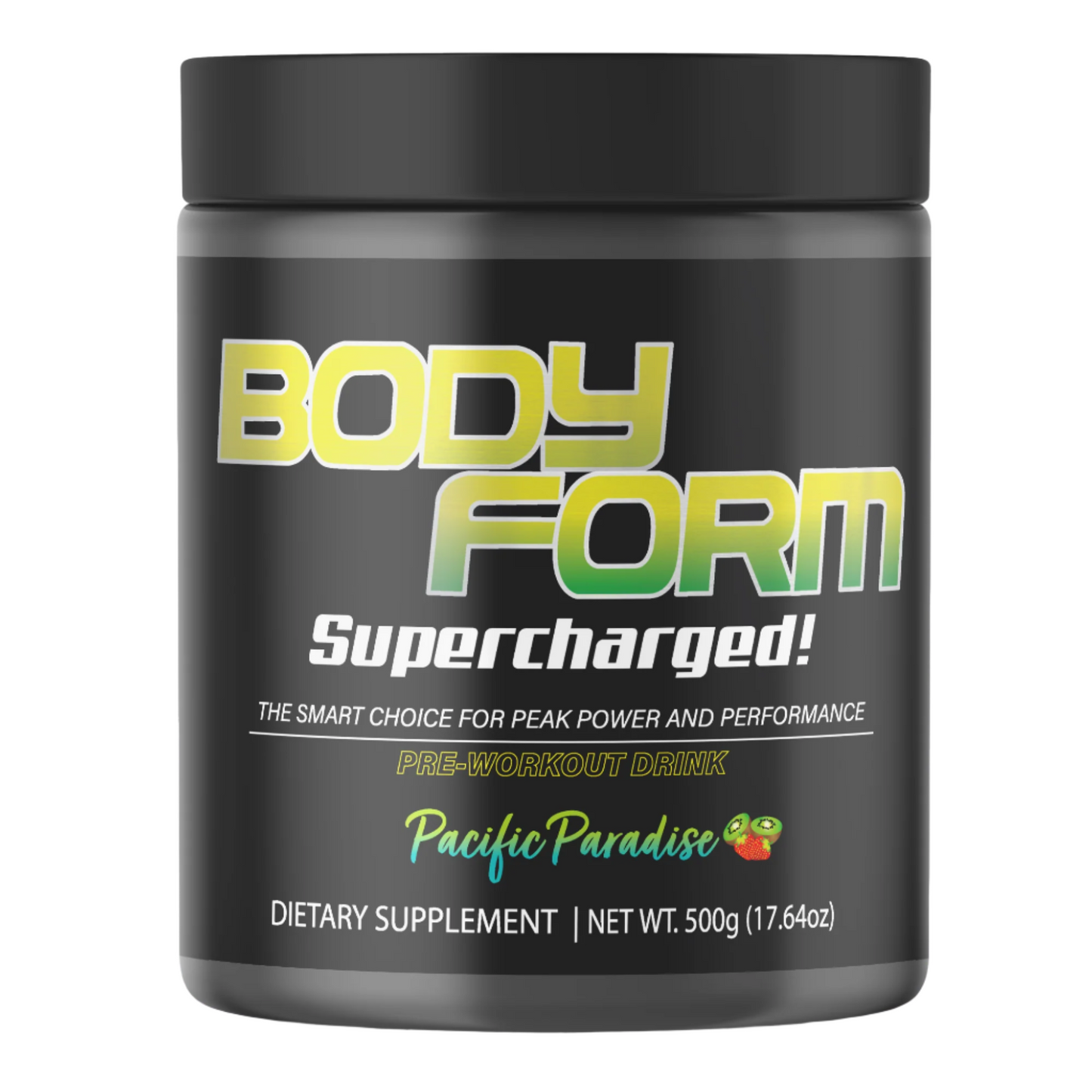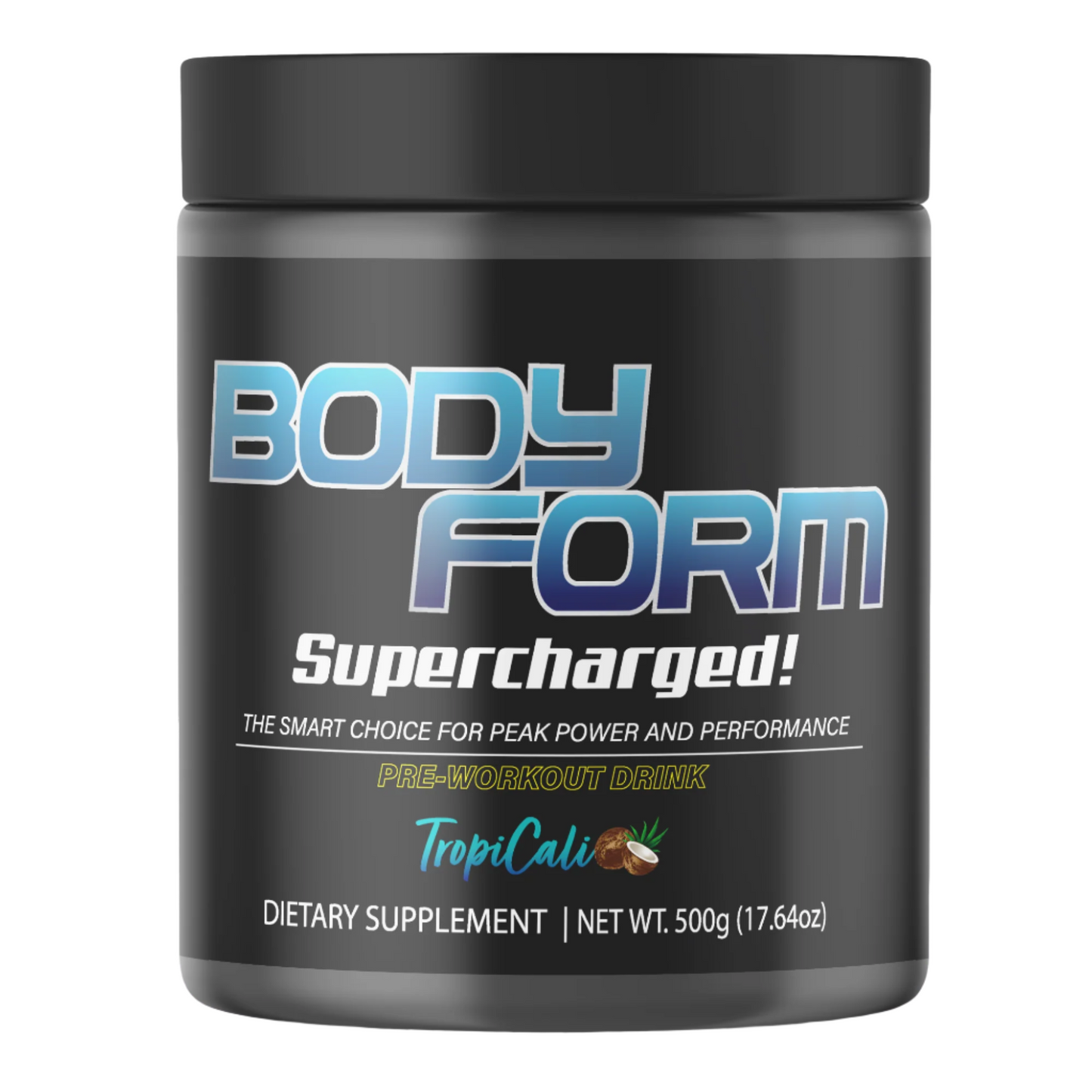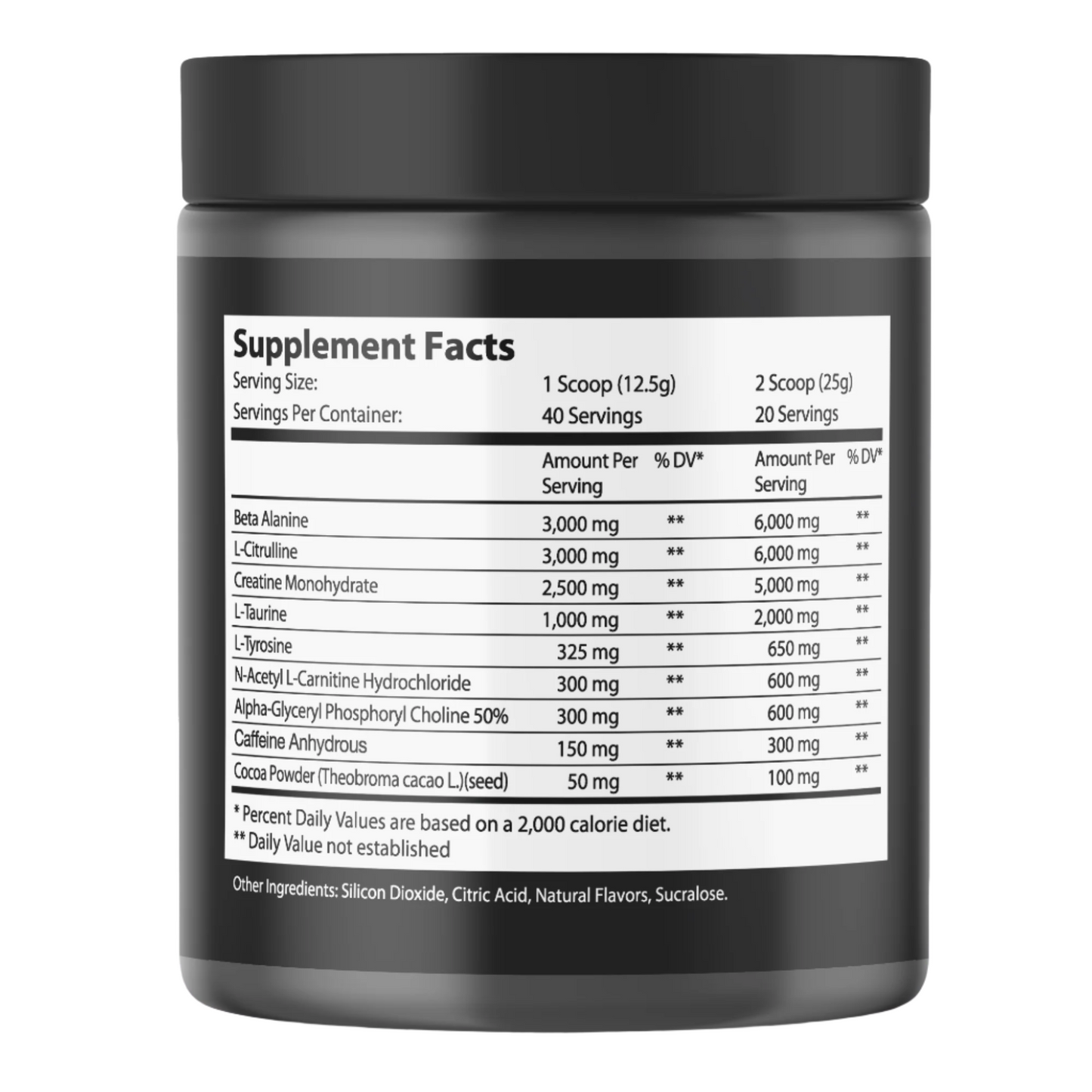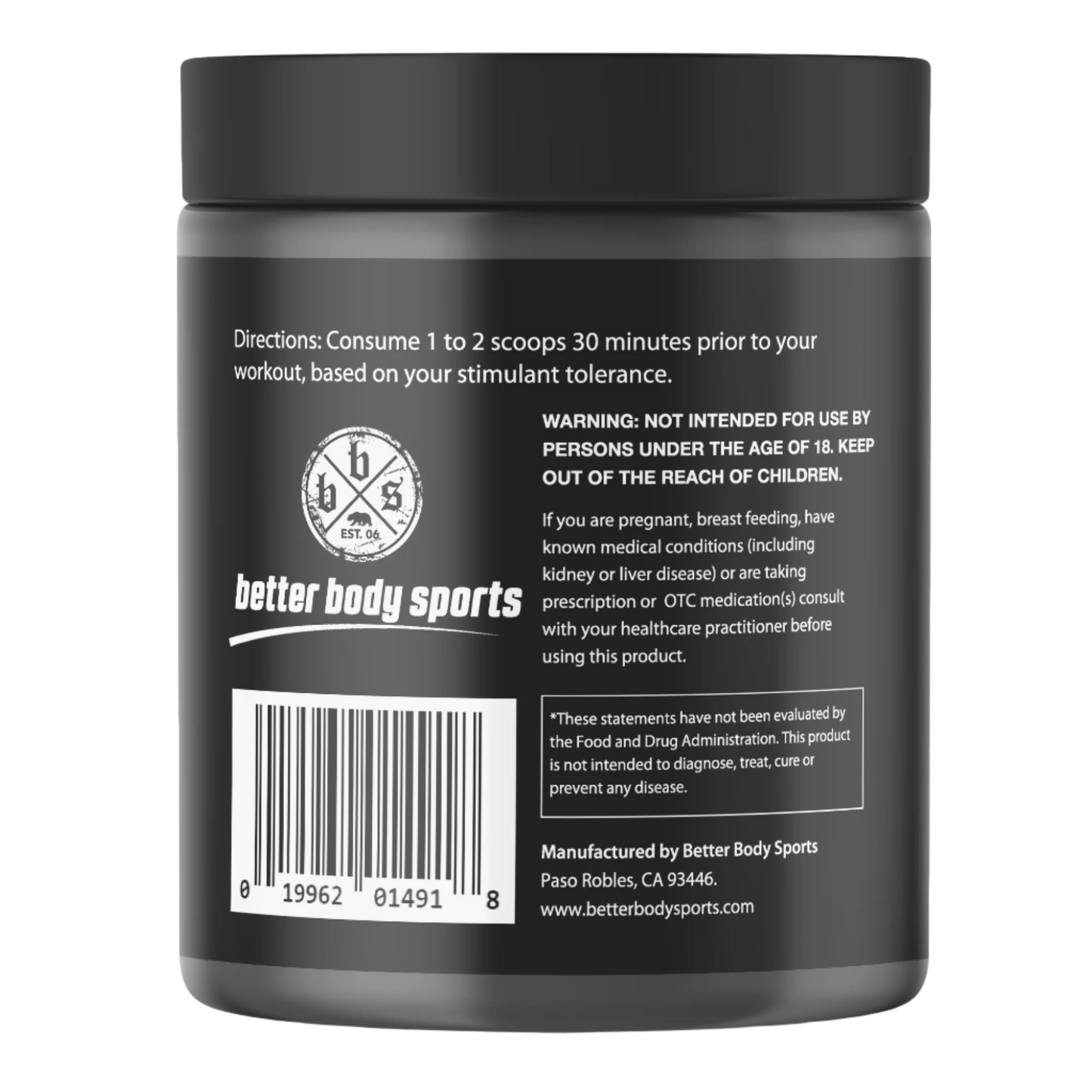
What Should Be in a Pre Workout Supplement
Share
What Should Be in a Pre Workout Supplement
Pre Workout Supplements are as popular now as they have ever been before. With all the different pre workout supplements, how do you know which one to pick? Before making a confident decision, you will need to understand what should be in a pre workout supplement. In this article we will help you understand the different categories within a pre workout supplement.
In this article you will learn
- What supplement categories should be in a pre workout drink
- Pre workout ingredients and the doses recommended
- What “common” ingredients can actually hinder your athletic performance
What Is Your Goal?
Some take a pre workout powder for weight loss while others take them to build muscle. Many of the pre workout ingredients crossover to both muscle building and fat loss. Caffeine is an example of this.
When determining our goal, it may be more important to consider the type of athletic performance we hope for in the gym. Are you looking for muscle strength or muscle endurance? Again, a good pre workout helps with both but their effectiveness is dosage dependent.
The Supplement Categories in the common Pre Workout Stack
Muscle Strength
Supplementation to increase strength is the most overlooked or misunderstood of the categories. Many assume the supplement increases their strength when it is actually increasing their muscles endurance by helping them perform more repetitions.
Increasing a muscle’s strength is to increase the amount of weight we can lift for a low amount of repetitions. If your goal is to increase strength, then you will need to look for supplements such as creatine at a dosage of 5 grams in your pre workout product.
Another ingredient spotlighted to increase strength is alpha gpc (glycerylphosphorylcholine). Alpha GPC is a type of choline known for its focus benefits, but may also help with power output during exercise.
Muscle Endurance
Increasing the amount of repetitions during an exercise can lead to greater muscle gains. Increasing reps can also indirectly lead to great strength in future workouts. This, of course, is only true when consuming the right amount of calories for your needs.
As mentioned, many believe a pre workout formula is increasing their strength because it increases their muscular endurance. Some ingredients such as creatine will crossover into both categories. Others such as citrulline at 6 grams is more for increasing reps.
One overlooked ingredient for muscular endurance is caffeine. While known for its ability to give us energy, caffeine can also help take our sets a few reps further. Increasing the amount of reps you perform can directly increase the time under tension for the exercise. When we can increase time under tension, we can work the muscle tissue and increase potential muscle hypertrophy.
The final recommendation may cause your skin to crawl. By that I am speaking of the tingle caused by beta-alanine. Beta-alanine. Companies use Beta-Alanine use pre-workouts because the “feeling” makes people think the product is working. Unfortunately, must have a dosage too low to cause muscle endurance. A range of 3-6 grams pre-workout or taken throughout the day can help increase the amount of repetitions in a set.
Increasing Energy
Pre workout drinks are most often consumed for their stimulant effect. This isn’t always a good thing, as many products contain an unhealthy amount of stimulants in their pre workout formula. When you see the term “strongest pre workout” on an advertisement for a pre-workout powder, take this as a warning sign rather than a sales pitch.
The energy we need for exercise begins before any dietary supplement. We should foremost get our energy from our pre workout nutrition. Throwing a blend of ingredients to stimulate our nervous system can lead to an uncomfortable feeling during exercise. This is especially true if we have not consumed enough calories before exercise.
If we have consumed a proper pre workout meal, then it may be a good idea to enhance this with the right amount of stimulant ingredients. Caffeine is still an excellent choice for this category, but certain amino acid ingredients in your pre workout blend can add a further benefit.
Taurine is one of those ingredients that can give us a more comfortable energy boost without overwhelming the system. Taurine can benefit our workout performance by increasing concentration and may also help increase muscular endurance. It is important to get the amount of energy to enhance your workout, but not to do the work for you. Come into the workout with your own natural energy.
Increasing concentration
Recent research has led to creatine becoming known as a nootropic in that it may help increase concentration. Yet another reason for creatine supplementation. But creatine is not alone in being able to increase focus and other pre workout attributes. Acetyl-l-carnitine and Alpha GPC can also be beneficial to ensure you have laser focus during your workouts.
Increasing Fat Loss
We often believe the stimulant effect we feel to be a direct contributor to fat loss. Sometimes this is true, but other times they are not.
For example, carnitine is thought to be a fat loss ingredient taken pre workout. While, as we mentioned, we should take it before exercise for its energy and focus benefits, research does not suggest that carnitine is effective for fat loss.
Caffeine is one of those ingredients that can also fall into the category of being a weight loss supplement. Research shows how taking the appropriate dosage can lead to an increased metabolism and fat burning effect.
The idea of taking a pre workout for weight loss may lead to a different result than expected. Rather than using them for fat loss, a better way to think about pre workouts is to improve body composition.
Increasing Nitric Oxide
You may remember how Arnold Schwarzenegger popularized the term muscle pump in the movie Pumping Iron. Since that time, bodybuilders have been searching for ways to get a better pump. With supplement companies recognizing how weight lifters “chased the pump,” they searched for ingredients to help increase vasodilation for further muscle pumps.
Arginine was the first to hit the market, but citrulline replaced it soon after as a top choice for increasing blood flow. While the pump is a great feeling, it doesn’t last forever. But thankfully there are more reasons to get pumped than just the temporary appearance of muscle growth. There are many other nitric oxide boosting ingredients available, but a good dose of citrulline will get the job done.
Adding To Your Pre Workout Stack
You have now learned the major categories of a pre workout drink. There are, however, are other ingredients you can add to a pre workout, making it a more complete supplement for exercise performance.
BCAA & EAA Supplements
These amino acids that the body cannot produce on their own include ingredients that may increase protein synthesis. While that is great, they do not require you to take them as a part of your pre workout powder blend. They have shown BCAA and EAA blends to delay muscle fatigue, making them an effective muscular endurance product. Branched chain amino acids and the remaining essential amino acids can be a beneficial addition to your before exercise stack.
Carbohydrate powders
For those seeking to increase muscle mass, a carbohydrate powder may be an excellent addition to a pre workout stack. By adding carbohydrate calories, you can ensure glycogen is available throughout the workout. The additional fast digesting calories can also help increase the total daily calories which can aid in muscle recovery.
While this is not an exhaustive list of ingredients you should look for, it should give you the direction you need in choosing a quality pre workout. Below you will find dosage recommendations for the ingredients mentioned.
MCT (Medium Chain Triglyceride) Oil Or Powder
Unlike other fats, MCT’s provide a quick source of energy for the body, medium-chain triglycerides require less digestion and quickly reach the liver where they convert into energy. MCT’s can help increase your exercise capacity but we should use them in moderation. This is a case where too much of a good thing can cause an unpleasant experience. Taking too much of a mct oil at a time can cause your only exercise being the quick sprint you make to the restroom.
The Right Dosage For a Pre Workout Drink
Caffeine: The dosage recommendations of caffeine can differ based on tolerance but range from approximately 150mg to 400mg for a 150lb individual.
Creatine: A common and acceptable dose of creatine monohydrate is 5 grams before exercise. A more specific breakdown would be .22 grams per pound of body weight. Researchers and fitness professionals respect either option.
Taurine: A general recommendation for taurine is between 500mg and 2000mg taken before exercise. Most individuals have a high tolerance for taurine, so the upper end of the recommendations work for both men and women.
Alpha GPC: Cognitive benefits for Alpha-glycerophosphocholine begin at 100-200mg, but the strength increases are more towards the 500-600mg mark. Higher dosages can be beneficial for cognitive decline but are unnecessary for pre workout supplementation.
Acetyl-l-Carnitine: There is not as much human based scientific research specifically on ALCAR. However, based on commonly used dosages with anecdotal feedback 300-600mg before weight training is a good standard to follow.
Citrulline: While lower dosages may still provide pump and muscle endurance benefits, we can see more consistent results at a dosage of 6 grams to 8 grams before exercise.
BCAA & EAA’s: Consume 5 grams of BCAA or 7 grams of EAA’s approximately 30 minutes before your workout.
Carbohydrate powder: The amount of carbohydrates you consume before exercise is unique to each person. Carbohydrate use is based upon the length of the workout, the intensity of the training, and the other foods you eat a day. However, a general recommendation is 25 grams for every 1-hour of resistance exercise.
MCT Oil or Powder: To start, you will want to consume MCT’s in a lower dosage. Begin with 1/2 tablespoon and slowly increase to a full tablespoon. Some may consume more than a single tablespoon, but it is unnecessary for most resistance training workouts.


